This article was medically reviewed by Luba Lee, FNP-BC, MS. Luba Lee, FNP-BC is a Board-Certified Family Nurse Practitioner (FNP) and educator in Tennessee with over a decade of clinical experience. Luba has certifications in Pediatric Advanced Life Support (PALS), Emergency Medicine, Advanced Cardiac Life Support (ACLS), Team Building, and Critical Care Nursing. She received her Master of Science in Nursing (MSN) from the University of Tennessee in 2006.
There are 16 references cited in this article, which can be found at the bottom of the page.
This article has been viewed 66,437 times.
Pneumonia is a respiratory condition that can be caused by either a bacterial or viral infection in the alveoli within the lungs.[1] Common symptoms include fever, coughing, hacking up yellow secretions, trouble breathing, and chest pain. On average, pneumonia can be treated at home and usually clears up within three weeks with antibiotics, but more severe cases may need hospitalization. However, there are several measures you can take to prevent getting pneumonia.
Steps
Taking Care of Your General Health
-
1Keep your immune system in good condition. Keeping a strong immune system is important for not only preventing pneumonia, but also avoiding other common illnesses and fatigue. People with weak immune systems, children younger than two years old, adults sixty-five years or older, and people with chronic health conditions are at a higher than normal risk of contracting Pneumonia. Make sure to take extra measures to maintain a healthy immune system if you are at a higher risk.[2]
- Eating too much sugar, not maintaining a healthy weight, stress, and lack of sleep can affect your immune system hampering its ability to fight off infection.
- Eat healthy foods with plenty of nutrients and vitamins such as fruits and vegetables.
- If you know that you lack certain vitamins, such as vitamin D, which is largely garnered from exposure to UV light, take the right supplements to balance what your body doesn’t produce enough of on its own.
- A weak immune system can be a result of lack of exercise and being overweight. If you have a high BMI, your immune system may not be working at full capacity.
-
2Stay away from other sick people.[3]
- Because Pneumonia can be contracted easily if you are already experiencing other illnesses, avoid people and places where you might encounter more germs. Stay away from grocery stores, public transportation, and even crowded waiting rooms.
Advertisement -
3Wash your hands frequently.[4] Because your hands interact with so many objects and people each day, keeping them clean is a great way to prevent Pneumonia.
- Carry hand sanitizer with you, as well, and use it frequently. Every time you use the door to a public bathroom and after every time you use a grocery cart are good places to start.
- Think about all the things you touch on a daily basis, and what parts of your own body your hands are coming into contact with, from your eyes to your mouth. Keep them clean to keep yourself healthy.
-
4Stop Smoking. One of the easiest, and also possibly hardest ways to boost your immune system and prevent Pneumonia is to quit smoking.[5]
- Because Pneumonia is a lung infection, smoking, which makes your lungs more susceptible to infections, will make it harder for you to prevent or even battle the ailment.
-
5Live a healthy lifestyle. Many doctors recommend this since it can protect you from many types of infections.
- A healthy lifestyle has just as much to do with what you do as what you abstain from doing. This means avoiding the wrong kinds of fats in food, too much alcohol, or avoiding stressful situations.
- Fats that are found in plant-based foods and oils are better for you than saturated fats often found in red meat and dairy products like butter.[6]
-
6Keep stress and inflammation down. If you’re chronically stressed, it can create inflammation and make you more susceptible to illnesses. Take care of yourself by exercising, relaxing, and meditating so you burn off any extra stress. That way, your immune system stays strong and healthy.[7]
- Avoid sugar and processed foods since they can contribute to your inflammation.
-
7Get enough sleep. The average adult needs between 7 - 8 hours of sleep a night.[8] Take measures to ensure you’re getting enough sleep.
- Sleep in the right position. You’ll get the best rest when you sleep in a position that keeps your neck and head straight. Also avoid sleeping on your stomach because it causes your head to lie at an awkward angle.
- Reduce light and sound an hour before going to bed. Give your body time to wind down by not using any electronics. If you feel restless, try reading in bed.
- Not getting enough sleep can also make it harder to fight off infections.
-
8Know the symptoms of pneumonia. Once you know your enemy, you take measures to prevent them from attacking you. By knowing what to look out for, you can further prevent getting Pneumonia.[9]
- Cough which produces green, yellow, or blood-like mucus, phlegm, or sputum.
- Fever, which may be mild or high.
- Body aches.
- Shaking chills.
- Difficulty breathing or shortness of breath when climbing stairs.
- Sweating and clammy skin.
- Headache.
- Loss of appetite, low energy, and fatigue.
- Sharp, sudden pain in the middle of the chest.
Consulting a Medical Professional
-
1Know if you have any major illnesses. Talk to your doctor if you have a serious illness, especially cancer or HIV AIDS as there is a higher risk of contracting Pneumonia due to an already weakened immune system.[10]
- Other factors like taking certain health medications, or a previous stroke can make Pneumonia easier to contract.
- To prevent Pneumonia, ensure that you are eating healthy foods and getting as much exercise as possible.
- Ask your doctor what you can be doing to prevent infection as they can make recommendations that are specifically tailored to you.
-
2Consult a doctor if any of the symptoms of Pneumonia appear. However, you may want to make sure that you don’t just have a common cold before making a trip to the doctor and spending the money.[11]
- If you feel that you may be showing symptoms, consulting your doctor as soon as possible can help you prevent the illness from worsening.
- Your doctor may order a chest x-ray if they think Pneumonia is a possibility.
- While you shouldn’t wait too long to go to the doctor if you do have Pneumonia, one of the ways to prevent getting Pneumonia is to stay away from areas where sick people are, like a hospital or doctor’s office. So it’s best to check to see if your symptoms resemble Pneumonia or just a common cold.
-
3Get vaccinated once every 5 years if your doctor recommends it.[12] Children will typically get the pneumococcal vaccination which will help their white blood cells learn what the infection is and how to battle it.[13]
- While this isn’t a cure-all or the ultimate prevention, a vaccination will help your body to learn what to look out for.
- Your doctor may recommend vaccination more frequently if you have certain chronic health conditions, such as asthma.
- In addition, getting other vaccinations for illnesses like measles or the flu can help prevent these illnesses from escalating to Pneumonia.
-
4Schedule routine checkups.[14] Getting regular checkups is one of the best ways to maintain a healthy lifestyle and prevent all types of illnesses and diseases, including Pneumonia; as it’s always easier to prevent something from starting than stopping it once it has.
- While a regular checkup may not find or prevent Pneumonia exactly, getting checked for myriad illnesses or conditions like immunodeficiency, blood pressure, asthma, etc., will help you prevent any other ailments that could lead to Pneumonia from getting worse.
Treating Pneumonia
-
1Drink plenty of fluids. Staying well-hydrated is very important if you are sick.[15]
- Avoid drinks with sugar in them.
- Water that is either warm or room temperature will be most effective for keeping you hydrated, and you can add lemon for a bit of flavor.
-
2Take acetaminophen. Something like Tylenol will reduce pain and fever, making you more comfortable.[16]
- Use a thermometer to monitor your fever. If your fever is 103 °F (39 °C) or higher, see your doctor immediately.
-
3Get plenty of rest. Sleeping a lot will help your body recover faster as not exerting yourself will let your body focus on fighting the infection.[17]
-
4Get a prescription from your doctor. If you have Pneumonia your doctor will prescribe an antibiotic that will help you to fight the infection within 2 - 3 days.[18]
- Your doctor will find which antibiotic is right for you based on your age, other health conditions, and medical history.
Expert Q&A
-
QuestionCan pneumonia cause death?
 Jurdy Dugdale, RNJurdy Dugdale is a Registered Nurse in Florida. She received her Nursing License from the Florida Board of Nursing in 1989.
Jurdy Dugdale, RNJurdy Dugdale is a Registered Nurse in Florida. She received her Nursing License from the Florida Board of Nursing in 1989.
Medical Review Board There is a high incidence rate of pneumonia deaths in the elderly or immunocompromised patient.
There is a high incidence rate of pneumonia deaths in the elderly or immunocompromised patient. -
QuestionI got pneumonia about 6 months back and I got very weak. Now I feel normal. How should I take care of myself and prevent pneumonia again?
 Jurdy Dugdale, RNJurdy Dugdale is a Registered Nurse in Florida. She received her Nursing License from the Florida Board of Nursing in 1989.
Jurdy Dugdale, RNJurdy Dugdale is a Registered Nurse in Florida. She received her Nursing License from the Florida Board of Nursing in 1989.
Medical Review Board It is not uncommon to feel weak for many months after pneumonia. It takes more recovery time than a person expects. Boost up your immune system and visit with your doctor.
It is not uncommon to feel weak for many months after pneumonia. It takes more recovery time than a person expects. Boost up your immune system and visit with your doctor. -
QuestionIs pneumonia dangerous to catch?
 Luba Lee, FNP-BC, MSLuba Lee, FNP-BC is a Board-Certified Family Nurse Practitioner (FNP) and educator in Tennessee with over a decade of clinical experience. Luba has certifications in Pediatric Advanced Life Support (PALS), Emergency Medicine, Advanced Cardiac Life Support (ACLS), Team Building, and Critical Care Nursing. She received her Master of Science in Nursing (MSN) from the University of Tennessee in 2006.
Luba Lee, FNP-BC, MSLuba Lee, FNP-BC is a Board-Certified Family Nurse Practitioner (FNP) and educator in Tennessee with over a decade of clinical experience. Luba has certifications in Pediatric Advanced Life Support (PALS), Emergency Medicine, Advanced Cardiac Life Support (ACLS), Team Building, and Critical Care Nursing. She received her Master of Science in Nursing (MSN) from the University of Tennessee in 2006.
Board-Certified Family Nurse Practitioner Pneumonia is a very serious, potentially deadly condition, and should be evaluated as soon as you develop symptoms, especially if you have any pre-existing conditions or are immunocompromised. Young people should take their pneumonia seriously too and follow up with their medical provider promptly to assure proper care and speedy recovery.
Pneumonia is a very serious, potentially deadly condition, and should be evaluated as soon as you develop symptoms, especially if you have any pre-existing conditions or are immunocompromised. Young people should take their pneumonia seriously too and follow up with their medical provider promptly to assure proper care and speedy recovery.
References
- ↑ https://www.lung.org/lung-health-diseases/lung-disease-lookup/pneumonia/learn-about-pneumonia
- ↑ https://familydoctor.org/condition/pneumonia/
- ↑ https://www.cdc.gov/pneumonia/prevention.html
- ↑ http://www.cdc.gov/handwashing/why-handwashing.html
- ↑ https://www.lung.org/lung-health-diseases/lung-disease-lookup/pneumonia/preventing-pneumonia
- ↑ https://www.eatright.org/food/nutrition/dietary-guidelines-and-myplate/choose-healthy-fats
- ↑ https://www.apa.org/topics/stress/body
- ↑ https://www.cdc.gov/sleep/about_sleep/how_much_sleep.html
- ↑ https://www.lung.org/lung-health-diseases/lung-disease-lookup/pneumonia/symptoms-and-diagnosis
- ↑ https://www.nhlbi.nih.gov/health/pneumonia/causes
- ↑ https://my.clevelandclinic.org/health/diseases/4471-pneumonia
- ↑ https://www.cdc.gov/vaccines/vpd/pneumo/downloads/pneumo-vaccine-timing.pdf
- ↑ https://www.cdc.gov/vaccines/vpd/pneumo/index.html
- ↑ https://www.betterhealth.vic.gov.au/health/servicesandsupport/regular-health-checks
- ↑ https://www.lung.org/lung-health-diseases/lung-disease-lookup/pneumonia/treatment-and-recovery
- ↑ https://www.lung.org/lung-health-diseases/lung-disease-lookup/pneumonia/treatment-and-recovery
- ↑ https://www.nhs.uk/conditions/pneumonia/treatment/
- ↑ https://my.clevelandclinic.org/health/diseases/4471-pneumonia
About This Article
To prevent pneumonia, remember to wash your hands regularly, and carry hand sanitizer with you so you can keep your hands clean on the go. Also, try to eat healthy and exercise regularly to keep your immune system in good condition, which can help prevent pneumonia. You should also make sure you're getting 7-9 hours of sleep every night since a lack of sleep makes it harder for your body to fight off infections. For more tips from our Medical co-author, like how to recognize the symptoms of pneumonia, scroll down!

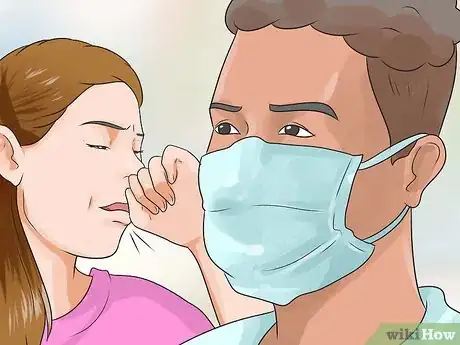
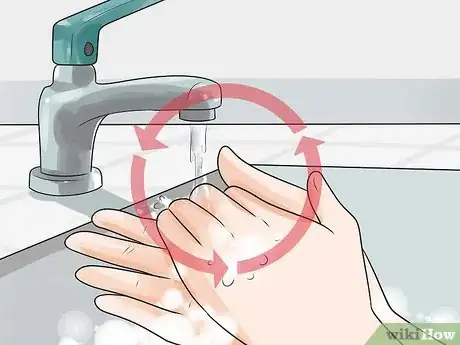
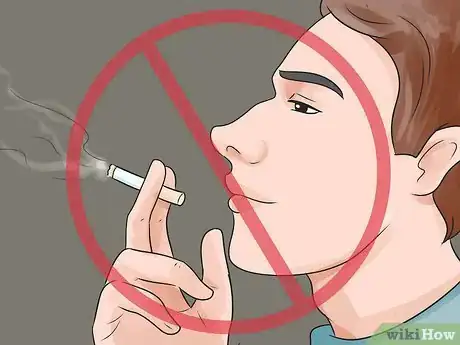

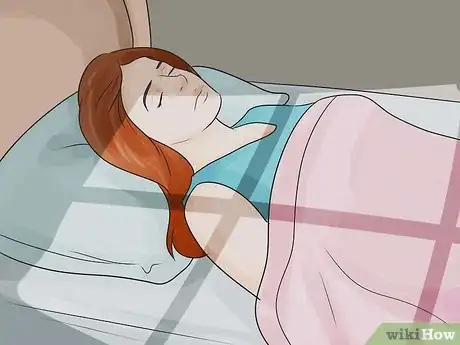
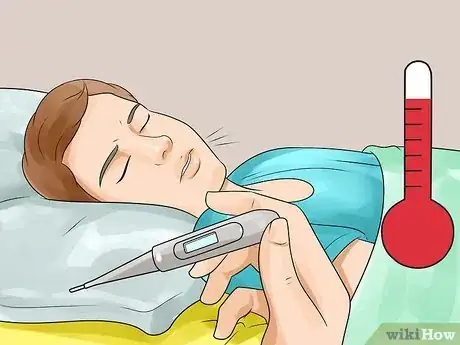
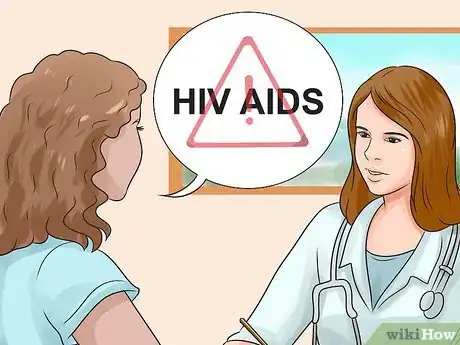
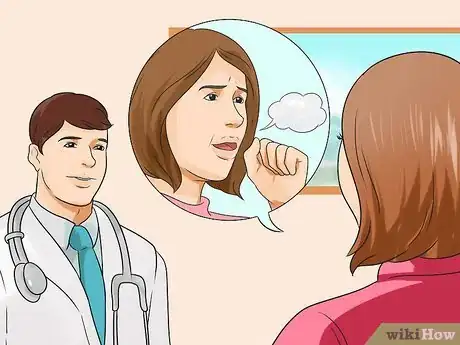
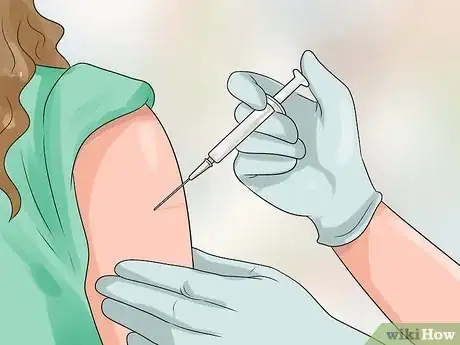
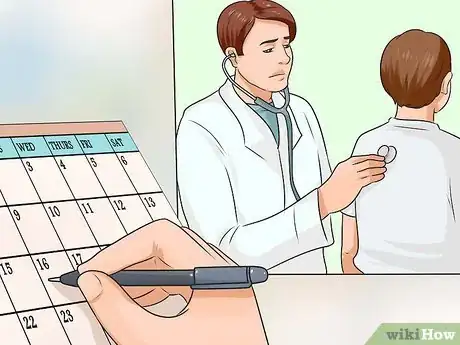


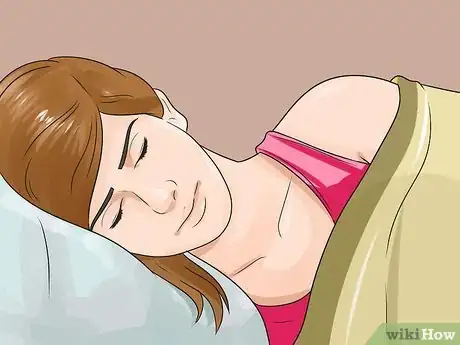
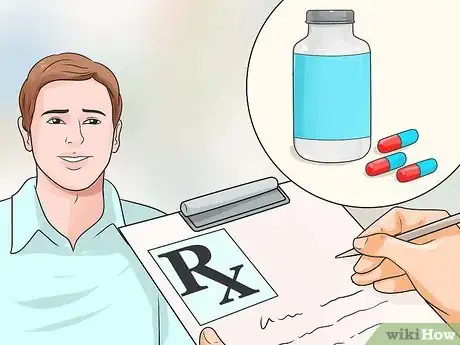





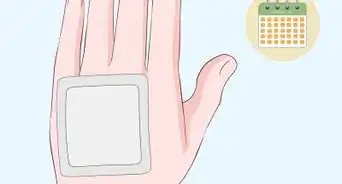






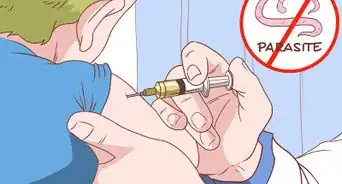















































Medical Disclaimer
The content of this article is not intended to be a substitute for professional medical advice, examination, diagnosis, or treatment. You should always contact your doctor or other qualified healthcare professional before starting, changing, or stopping any kind of health treatment.
Read More...